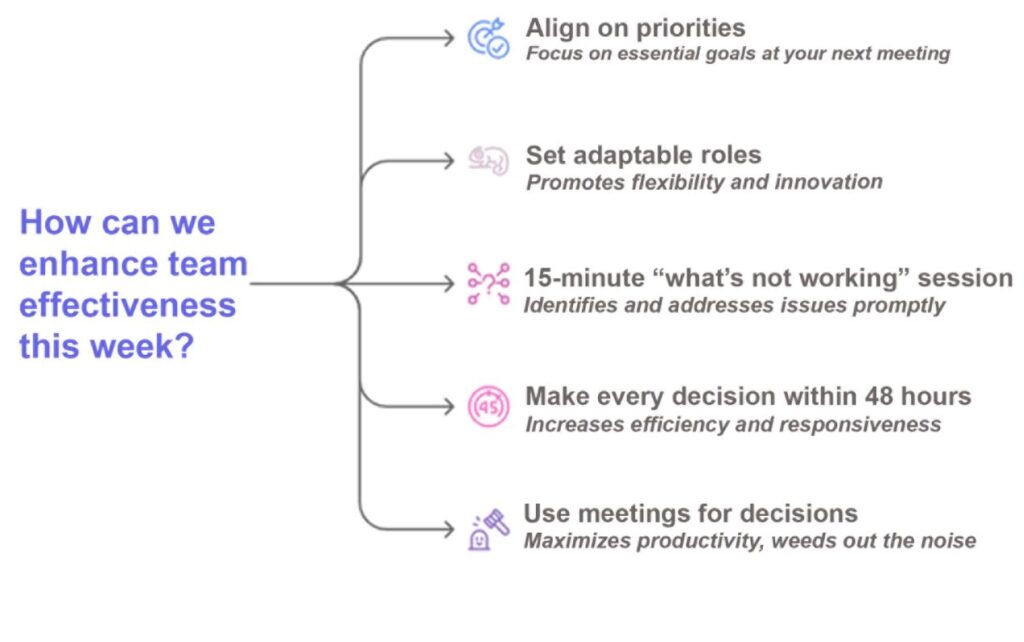
What’s on your mind: the most-read brain circuits of 2025
Our regular series of short articles on the most pressing issues of the moment attracted a good deal of attention this year. Here are the 10 you viewed the most – including...

by Susanne May Published July 3, 2025 in Brain Circuits • 3 min read
If this sounds familiar, it’s not because your people aren’t talented, but because the way they work together isn’t designed for success. Talent is not the secret sauce that separates good from great teams: what makes the difference is culture.
If the first instinct when something goes wrong is to find out who messed up, the team is already in trouble. This behavior kills trust and discourages risk-taking.
Slow, messy decision-making is a silent killer in teams. Circling the same issue in multiple meetings, waiting for consensus, or avoiding a call because no one wants to be the one who makes the wrong call leads to stagnation.
Beware of the “all-talk, no-action” trap. This is when meetings become updates instead of decision-making spaces – people leave a room without knowing what’s happening, who’s responsible, and when.
Start by asking the following questions:
Invites a pause and check-in on strategic alignment.
Gets underneath the delay without judgment and targets the “drag.”
Shifts sharply from blame to learning; behavior check.
Combines clarity and adaptive ownership.
Brings an outside-in lens, pressure tests for real-world effectiveness.
These are small questions, but the answers reveal a lot. Even something as simple as shifting a weekly meeting from updates to decisions can unlock huge gains in momentum.

The most successful teams balance structure with flexibility, psychological safety with accountability, and speed with thoroughness. And remember: talent sets the ceiling, but culture determines how close you get to it.

Founder and CEO of May & Company
Susanne May is a leadership and organizational development expert with over 20 years of experience driving high-performance cultures, strategic transformations, and digital learning innovation. She has partnered with global organizations such as the World Bank, UNICEF, WHO, and Daimler, delivering impactful learning programs with consistently high engagement. As a people leader, she scaled a global team across 60+ countries, championing growth through purpose-driven development.

December 16, 2025 in Brain Circuits
Our regular series of short articles on the most pressing issues of the moment attracted a good deal of attention this year. Here are the 10 you viewed the most – including...

December 11, 2025 • by Ginka Toegel in Brain Circuits
AI has the potential to become a super-useful teammate, but CHROs must manage its deployment with care. Answer the questions below to check how employees feel about its adoption and watch out...

December 9, 2025 • by Francesca-Giulia Mereu in Brain Circuits
We’re all familiar with fight, flight, or freeze stress responses. But clinical psychologist Ingrid Clayton identifies a fourth survival strategy lurking in your neural circuitry that most leadership training misses – and...

December 4, 2025 in Brain Circuits
A skills-powered approach to talent management can boost agility, efficiency, and productivity, but transitioning to it is a complex undertaking. Ravin Jesuthasan explains how to get started and identifies the eight pillars...
Explore first person business intelligence from top minds curated for a global executive audience